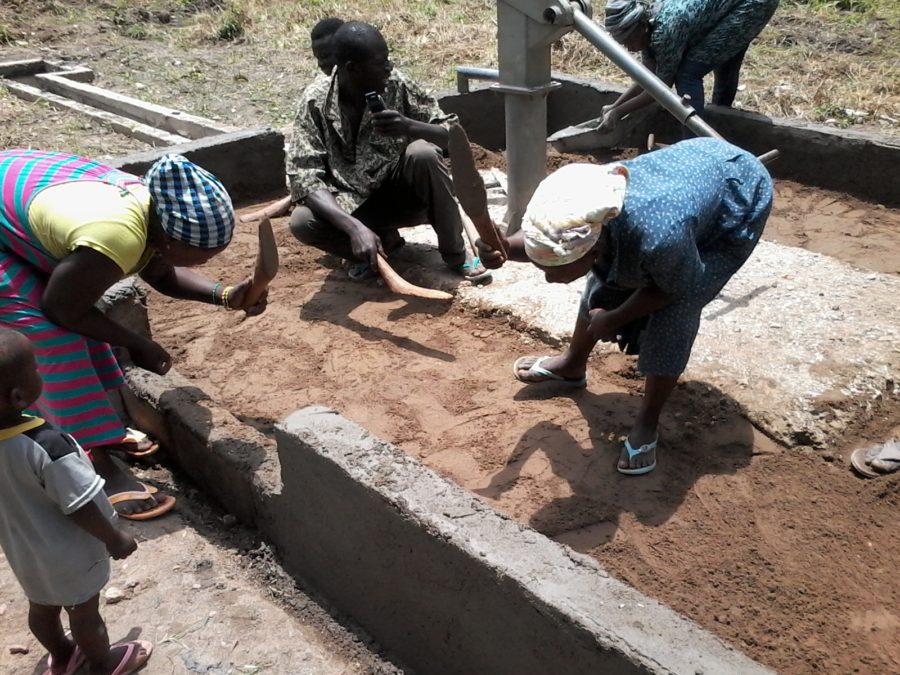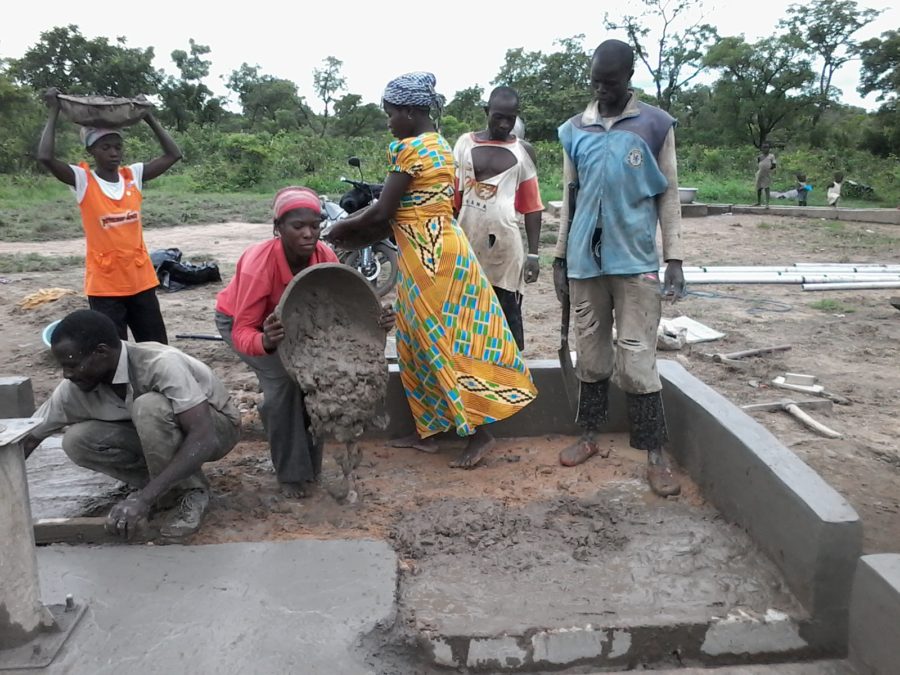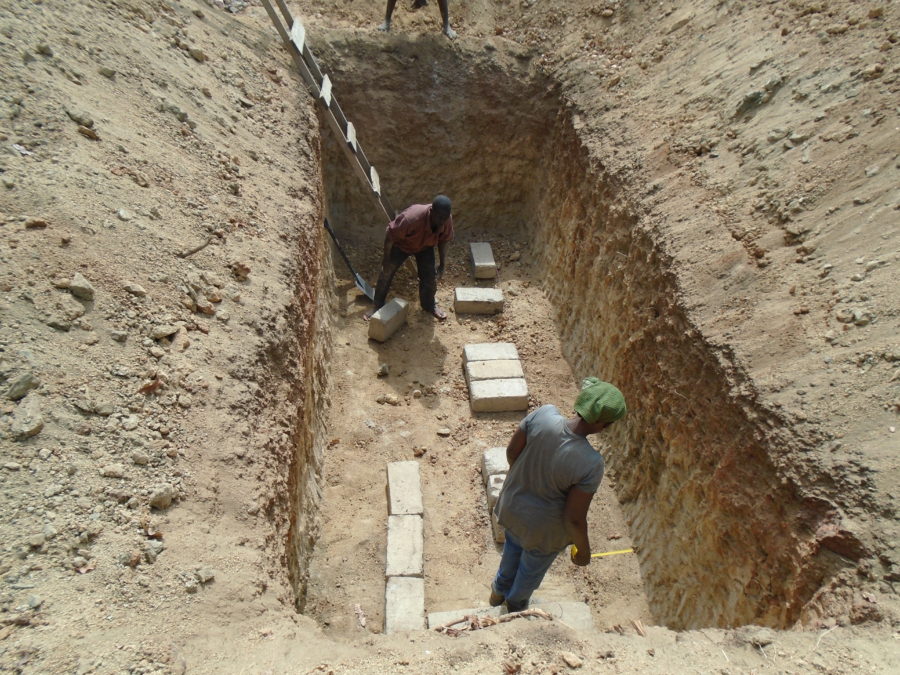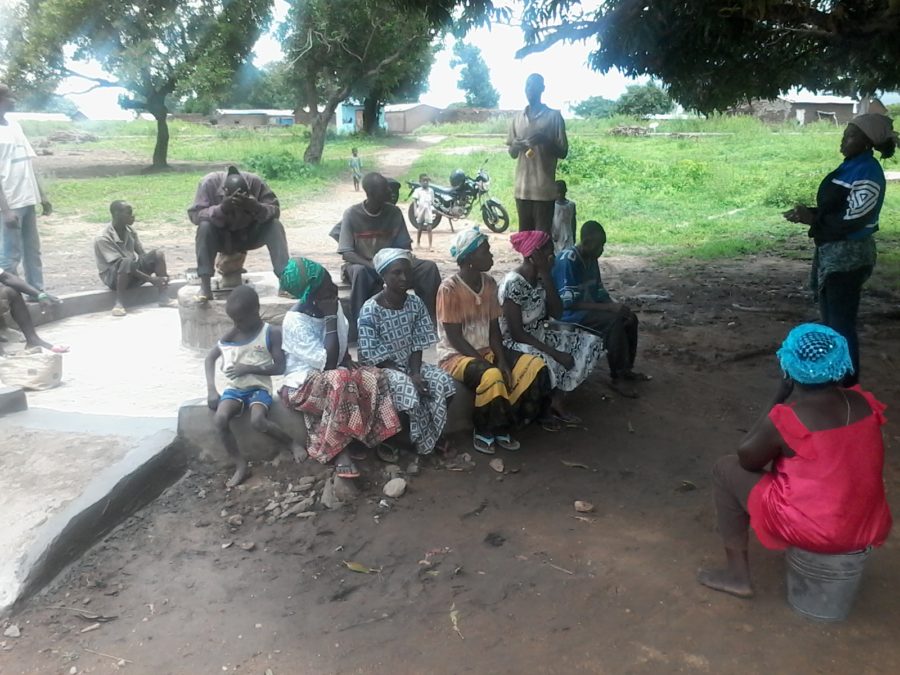Ripples from West Africa, a partner update from Ghana
In 2010, Monica Ayomah was one of the eight local women trainers in the West African Women and Water Trainings in Ghana. We were thrilled to hear from Monica this month and learn how her leadership has unfolded over the years. Today she is a WASH trainer in Ghana, touching the lives of countless more women and spreading critical water and sanitation technologies to many.
Here’s a short clip of Monica during the training, reflecting on her role as a woman trainer and how important representation is for women in technology.
“They were thinking it was only men who can do construction, it was only men who can work on water for women to use.”
The West African Women and Water Training, hosted by the Global Women’s Water Initiative (GWWI) — an initiative co-founded by WEA, A Single Drop, and Crabgrass — supported women to become entrepreneurial leaders in the WASH sector through workshops on capacity building, business development, and technical training in a range of WASH development projects. The training program also served as a platform from which women trainers could expand their training reach and capacity.
Monica trained the 15 teams on how to set up rainwater harvesting systems. Taking on that kind of leadership role, Monica said, she saw concrete ways her work could have lasting and far-reaching positive impact for other women and their communities.
“It wasn’t until I participated in a workshop,” she said, “that I realized I was empowered as a woman to empower other women to be leaders.” She explained that participating in the trainings connected her with a network of grassroots change-makers. This network helped her see how WASH intervention had the potential to empower more and more women. She saw how she could positively impact communities by providing education around safe water practices.
Monica came away from the 2010 Women and Water Trainings emboldened to carry her knowledge forward and help others gain skills, tools and confidence to realize those goals.
So, Monica started her own civil engineering firm!
Shifting professionally from masonry in private homes, Monica started a civil engineering firm and named it Won-Nyeya, meaning “God has seen” in the Builsa language. The firm works with WaterAid Ghana as a WASH construction partner and has five employees: a project officer, monitoring and evaluation officer, engineer, community development educator and a secretary. In the last few years Won-Nyeya has worked in the Northern, Upper East, Upper West and Volta regions of Ghana to implement Water Sanitation and Hygiene services to underserved communities, schools and clinics.



Sometimes, Won-Nyeya’s work involves constructing or improving infrastructure like wells, rain harvesting systems and latrines. The firm may also be called upon to train Sanitation Management Teams or conduct WASH trainings at schools and health clubs.
Monica credits the 2010 Women and Water Training for helping her see ways to build Won-Nyeya as a firm with an effective engagement model that puts women at the center of their own community’s progress.
“Before implementing any WASH project we ensure that women are actively involved at the awareness creation and community level planning,” Monica explains, describing strategies Won-Nyeya uses that are clear and concrete while staying flexible enough to use effectively in various communities with different needs. In fact, water and sanitation management teams that are formed have at least three women occupying executive positions, training women as pump mechanics so that they are “actively involved in community decision making.”

And she is just getting started! In the future Monica hopes to develop construction and engineering programs specifically for women and girls in technical and vocational schools, as well as continue to increase access to potable water and sanitation services in underserved communities.
